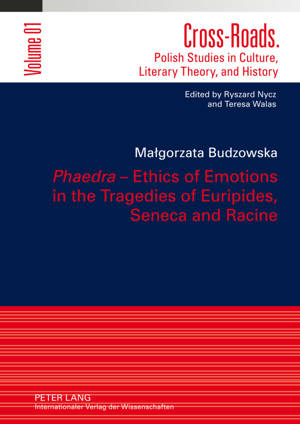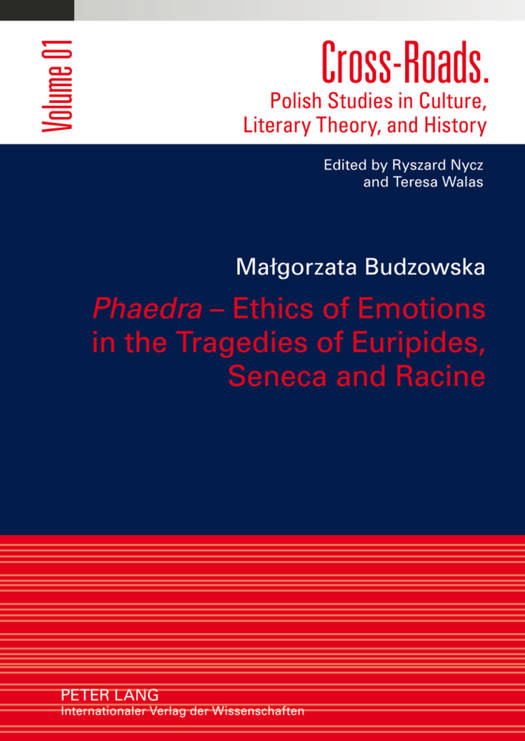
Door een staking bij bpost kan je online bestelling op dit moment iets langer onderweg zijn dan voorzien. Dringend iets nodig? Onze winkels ontvangen jou met open armen!
- Afhalen na 1 uur in een winkel met voorraad
- Gratis thuislevering in België vanaf € 30
- Ruim aanbod met 7 miljoen producten
Door een staking bij bpost kan je online bestelling op dit moment iets langer onderweg zijn dan voorzien. Dringend iets nodig? Onze winkels ontvangen jou met open armen!
- Afhalen na 1 uur in een winkel met voorraad
- Gratis thuislevering in België vanaf € 30
- Ruim aanbod met 7 miljoen producten
Zoeken
«Phaedra» - Ethics of Emotions in the Tragedies of Euripides, Seneca and Racine
Translated by Adriana Grzelak-Krzymianowska
Malgorzata Budzowska
€ 69,95
+ 139 punten
Omschrijving
Emotions as 'the early form of knowledge about the surrounding world' constitute a necessary component of the human psyche. Nevertheless, through the ages of the development of mankind, the emotional aspect was often regarded as a dispensable part of human nature, which should be fully ruled by reason. Despite the general opinion about the necessary control of reason over emotions, the possible participation of the latter in the human decision making processes was taken into consideration already in Antiquity. The dealing with the ethical aspect of emotions was one of the prevailing issues in the works of Euripides. In his tragedy of Phaedra the poet gives the broadest description of the process, which can be observed in a man afflicted with 'emotional obsession'. The reception of this topos can also be considered in the tragedies of Roman philosopher Seneca, and modern French poet Jean Racine. This book was awarded as the best PhD thesis in culture field in Poland in 2009.
Specificaties
Betrokkenen
- Auteur(s):
- Uitgeverij:
Inhoud
- Aantal bladzijden:
- 206
- Taal:
- Engels
- Reeks:
- Reeksnummer:
- nr. 1
Eigenschappen
- Productcode (EAN):
- 9783631633052
- Verschijningsdatum:
- 23/11/2012
- Uitvoering:
- Hardcover
- Formaat:
- Genaaid
- Afmetingen:
- 148 mm x 210 mm
- Gewicht:
- 369 g

Alleen bij Standaard Boekhandel
+ 139 punten op je klantenkaart van Standaard Boekhandel
Beoordelingen
We publiceren alleen reviews die voldoen aan de voorwaarden voor reviews. Bekijk onze voorwaarden voor reviews.











